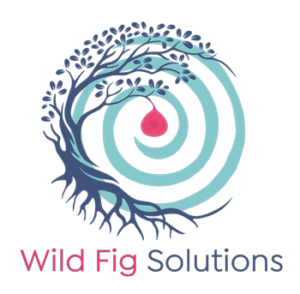In the Three Principles, and other nondual-based explorations, we often hear ‘Look and see for yourself’, ‘Don’t take my word for it’. ‘Nobody can give this to you’. But as my exploration continued I came to see I didn’t know how to look for myself — not at the level that really brought integration to what I’d awoken to.
Since discovering the Three Principles and nonduality I’d had significant shifts in my experience of life, but I was trying to use others’ words to describe and define and explain that. It wasn’t me. The words weren’t coming from within me. Because I hadn’t crossed some logical bridges. I hadn’t closed some experiential loops and fully integrated.
In the three days of the Three Principles conference this last week, words along similar lines of ‘what do you know for yourself’ were used, and it seems to me this is another aspect of this exploration where you just keep seeing deeper, and deeper and deeper.
What do you know — for yourself?
Given the backdrop of ‘using’ other peoples words and ideas, this question — what do you know for yourself?’ — was a powerful shift for me in my exploration. The teacher I was working with could see I was in my head, borrowing concepts and ideas I’d heard from other people, assuming the words themselves to be truths.
“Don’t get hung up on my words” Syd Banks
I hear Syd saying the same thing with quotes like this (I don’t know these are his exact words but he certainly conveyed this message). Don’t learn the words. The words aren’t the answer. Look for yourself.
At first I took this as ‘turn off your mind and just trust you’ll get what you need from listening in a relaxed state’. And you can get alot that way! We could say that when we’re doing that we’re listening with the heart. This is powerful given most of us have been taught to live and listen from the head.
And if this continues to feel good, and all you need, then you can stay in that all your life. You will certainly have a more loving impact on the world than if you weren’t doing that.
But sometimes that doesn’t feel like enough.
A little voice is saying — but does this make sense? The politically-adept, indirect answers from the coaches, guides and teachers won’t engage with the mind. They are experts at redirection and at shifting attention to stories, to metaphors, to love. Not wrong. Again, it’s useful to first speak to the heart and wake it up.
But a nagging discomfort in the background is feeling the dissonance of ‘all is love and all is included — except the intellect. Except the human mind’. That doesn’t feel true.
Isn’t there a difference between trying to solve my life from a limited conceptual mind, and directly testing my experience from an open-eyed, assumption-free, logical standpoint?
It’s questions like these that bring the previously dismissed ‘head’ back into the exploration. Returning us to integrated harmony.
Wholeness is never found in either-or. It’s always both-and.
What we want is the heart and the head.
We just need to learn to use the head in the way that’s valuable to our awakening journey and this way is in a non-judgemental, ‘I wonder’, kind of way. An open, curious, exploratory way. A way which enables us to check out what our experience is actually like (rather than what we believe it to be) and then bringing logical words and phrases to describe that.
This is the shift into seeing — really seeing — for yourself who you really are and what experience is like. This is how you check what you actually know for yourself.
How do I bring the head and logic back in?
Here’s an example from a tweet I shared last week on the back of a tweet by Keith Frankish:

Check for yourself — do you have an experience of your prefrontal cortex? Do you have an experience of your optical nerve? Do you even have an experience of eyes? Even when you look?
Actually check, look directly at what seeing is like for you. This is where the power is. Please don’t take my word for it.
When you see this, every time you explore in this way, with any and every concept — for yourself — the confusions of the mind fall away and you’re left in life.
As who you are.
With concepts back in their rightful place as secondary, useful and practical.
Concepts, and the intellect, don’t need to be dismissed, simply returned to their rightful role.
“Believe nothing, no matter where you read it, or who said it, no matter if I have said it, unless it agrees with your own reason and your own common sense.” Buddha
So please do, test what you hear from everyone — absolutely including me and this post — for yourself. What is your experience actually like? Drop behind and before words, concepts and ideas. Be rigorous. Look clearly for yourself. This is where the power is.
Much love, Helen
P.S. If you’re not sure how to look at what you know for yourself, you’ll want to buy the new book from myself and Sara Priestley. Out on 3rd November 2022 – The Complete Book of Awakening. It gives you practical explorations to look at your experience for yourself – before words and before conceptual ideas. Sign up to my newsletter to be kept up to date with the latest.

